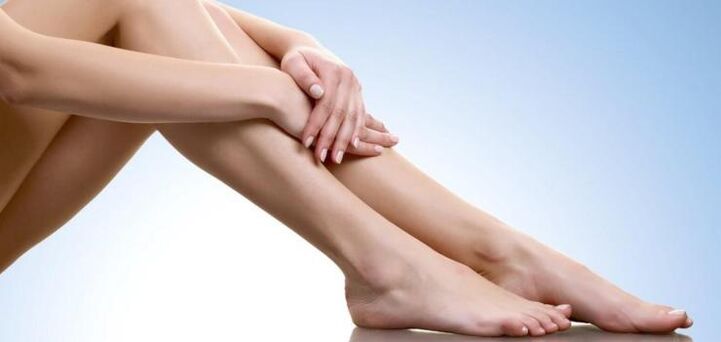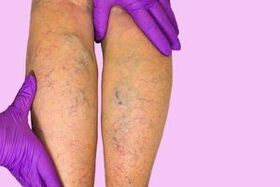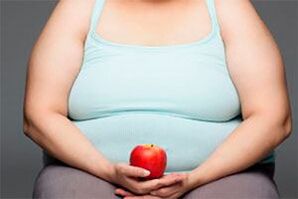
In the modern world, a large percentage of the population suffers from varicose veins.This pathology was included by the World Health Organization in the list of “diseases of civilization”.Due to lifestyle and genetic predisposition, the disease is more common in women.The disease affects not only older people but also young people.Varicose veins have very extensive contraindications and restrictions, non-observance of which can have serious consequences.
When the first signs of varicose veins appear, you must be examined by a surgeon and strictly follow his instructions.There is no need to self-medicate, this can lead to irreversible changes.
Degrees
Varicose veins of the lower extremities appear gradually.There are 3 degrees.
Compensation phase.The legs swell and become tense, especially after walking or standing for long periods of time.Possible burning and pain in the vessels of the lower extremities, as well as cramps in the calf muscles.Later, a small vascular network appears, manifesting itself as “stars”.It is advisable to minimize a sedentary lifestyle and do preventive exercises. Women should avoid wearing high-heeled shoes.
Women should avoid wearing high-heeled shoes.
Undercompensated level.At this stage, the pain in the legs increases, cramps and swelling increase.The veins become even more prominent and swell into bluish nodules;the wall becomes thinner and the vessel may burst.The skin peels and itches in the affected area.It is impossible to comb the localized area, this can cause microtrauma.It is better to avoid tight underwear and tight clothing.You should avoid intensive sports and heavy lifting!
Stage of decompensation.This phase is characterized by difficulty in draining blood from the veins, resulting in severe swelling of the lower extremities.Long-lasting trophic ulcers and eczema may occur.This stage is often accompanied by inflammation and thrombosis of the blood vessels.If the lumen is blocked by a thrombus, surgical intervention is required.Wearing compression clothing is mandatory during the decompensation phase.Intensive physical activity should be avoided.
restrictions
If there is pain, the patient must lose weight if they are overweight.A diet is necessary to reduce blood cholesterol levels, which clog the lumens of blood vessels and provoke the appearance of blood clots in them.

If you notice the first signs of varicose veins - itching, burning, numbness in the muscles - you need to avoid alcohol and reduce salt consumption.These products contribute to the formation of lipoproteins on the walls of blood vessels and the development of atherosclerosis.
If you have varicose veins, it is advisable to choose comfortable, “correct” shoes.Wearing shoes that are too tight, especially high-heeled shoes, contributes to leg congestion.
An orthopedist will help you choose orthopedic insoles and recommend compression clothing and special stockings.
If the integrity of the skin is compromised, hirudotherapy, acupuncture and physiotherapy are contraindicated.
Contraindicated procedures
Hot baths are not recommended for varicose veins;It is better not to visit baths and saunas.
In the initial phase of varicose veins, you can take a contrast shower and a foot bath.
In the advanced stages of the disease, massages, especially cupping and honey, are no longer possible.Packs containing various cosmetic preparations are prohibited.
Hair removal on the legs is possible without eczema and ulcers, but sugaring and wax strips should be excluded.
Heat compresses are contraindicated;They can aggravate trophic ulcers or cause allergies.
Long stays in the sun and in the solarium are extremely undesirable.Tattoos should not be applied to the affected areas of the body, especially if the integrity of the dermis is damaged;This can lead to serious complications.
At the stage of decompensation, warming physiotherapeutic procedures are not prescribed.In the initial stages, magnetic field therapy and darsonvalization help.
Banned drugs
Women with varicose veins should not take hormonal birth control pills.They contribute to blood thickening and there is a risk of blood clots.
You should not take diuretics or other medications that help remove excess fluid from the body.This can negatively affect the metabolic process.
The use of medication must be coordinated with your doctor.
Physical activity
For mild varicose veins, non-intensive physical activity is recommended.Hiking and cycling, swimming, yoga and Qigong exercises are useful.
If the blood vessels do not expand, you can practice callanetics and stretching.

In advanced cases of pathology, the following are strictly contraindicated:
- long-term static load;
- lifting weights over 5 kg, weight lifting and wrestling;
- outdoor sports games such as soccer or volleyball;
- mountaineering and hiking;
- professional dance classes;
- fast running, especially over long distances;
- skydiving;
- Step aerobics.
Prohibited products
It is important for a person with varicose veins to adhere to proper eating habits.
Exclude:
- fatty foods;
- cucumbers;
- smoked meats;
- marinades;
- canned food
Avoid eating sweets, flour and butter products, and products with a high palm oil content.These foods provoke the appearance of atherosclerosis.
The diet of a patient with venous disease should not include fast food, processed foods, carbonated drinks, coffee and strong brewed tea.
It is better to limit salt and hot or too hot spices, celery and mint.
Nutritional recommendations
With varicose veins, a sufferer has to eat small portions, often up to five times a day.It is particularly important for overweight people to pay attention to their diet.Due to excess weight, there is a risk of thrombophlebitis with subsequent vascular embolism.
Products should be subjected to gentle heat treatment, preferring baking, steaming and boiling.Smoking and frying food should be avoided.
A patient with varicose veins should drink the required amount of fluid, about 2.5 liters, daily.If the drinking regime is not adhered to, the blood thickens and blood clots can form.
General recommendations
To improve the quality of life, a person with venous insufficiency must adhere to certain rules:

- with advanced varicose veins, heavy physical activity is prohibited;
- Sit and stand less, move more.If a person works while sitting, get up and stretch regularly;
- eliminate constipation that leads to congestion of the pelvic organs;
- eat right and enough, eat fresh vegetables and fruits to obtain the necessary microelements and minerals;
- For congestion in the lower extremities, wearing compression garments is necessary;
- Avoid alcohol, even in small quantities, and smoking.These bad habits lead to sclerosis of the venous lumen;
- taking anticoagulants as prescribed by a doctor;
- full sleep, at least 8 hours;
- elevated position of the legs when lying down;
- preventive gymnastics.
You can relieve the symptoms of the disease with horse chestnut-based tinctures, angioprotective and cooling ointments, and painkillers.To improve blood circulation, the necessary medications, vitamins C, E and P, as well as antispasmodics are used.
At the first signs of pathology, you should contact a surgeon or phlebologist.Self-treatment is completely unacceptable.
Taking pain-relieving ointments and tablets briefly relieves the condition, but does not cure it.Only a specialist can assess the extent of the disease and refer the patient for the necessary examinations and diagnostic procedures.Based on the results of the examination, adequate therapy is prescribed.
In case of venous rupture or thromboembolism, surgical intervention is indicated and cannot be postponed, as these conditions are life-threatening for the patient.




















